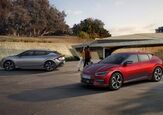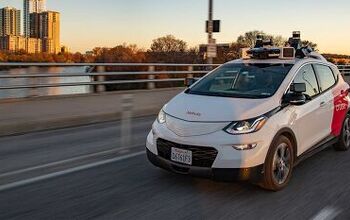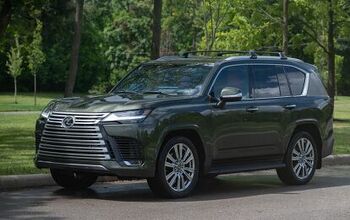The Art Of The Fuga: Hybrid Nissan Promised To Be 90 Percent More Fuel-Efficient

A hybrid version of the Nissan Fuga (better known as the Infiniti M35/45 on these shores) could deliver an up to 90 percent better fuel-efficiency than its conventionally powered model, Nissan’s chief engineer for hybrid systems told The Nikkei [sub] today.
“We expect fuel economy to improve by 60 percent to 90 percent” over the conventional model, chief engineer Koichi Hayasaki said at a media briefing.
Up until now, Nissan used hybrid technology developed by Toyota. The Fuga/Infiniti will be the first car to use a hybrid system developed by Nissan in-house. If Hayasaki-san is right, it might give Toyota some headaches. It could also be a game changer in Europe. Europe is usually hybrid-adverse, but 60 to 90 percent better mileage could change that.
According to the Wall Street Journal, Nissan will roll out the Fuga hybrid this autumn in Japan and next year in the U.S.
Hayasaki said Nissan’s own hybrid system will be about 30 kilograms lighter than Toyota’s system. Nissan’s system uses one electric motor whereas Toyota’s uses two. The engineer said the cost of Nissan’s hybrid system should be lower that those of Toyota’s because it’s simpler. Better mileage at a lower price point could induce serious headaches.

Bertel Schmitt comes back to journalism after taking a 35 year break in advertising and marketing. He ran and owned advertising agencies in Duesseldorf, Germany, and New York City. Volkswagen A.G. was Bertel's most important corporate account. Schmitt's advertising and marketing career touched many corners of the industry with a special focus on automotive products and services. Since 2004, he lives in Japan and China with his wife <a href="http://www.tomokoandbertel.com"> Tomoko </a>. Bertel Schmitt is a founding board member of the <a href="http://www.offshoresuperseries.com"> Offshore Super Series </a>, an American offshore powerboat racing organization. He is co-owner of the racing team Typhoon.
More by Bertel Schmitt

































Comments
Join the conversation
Couldn't see how they could make the hybrid unit 30kgs lighter AND convert to a plug-in system, even if they did drop one motor. I know that Lithium based batteries are lighter thanks to higher energy density, but not by orders of magnitude (50-100% higher I think). 90% fuel reduction is a massive number and would mean that hybrids could be sold according to logical arguments of return on investment, rather than more subjective feelings of "doing good for the environment". Intrigued to know what they've done...
Maybe it's paired with a lower-displacement version of the VQ motor, like a 3.2L ?
This probably has a lot to do with Japan’s fuel economy test. Remember all the reports about how the 3rd-gen Prius would get ~90mpg? Well it did… on the Japanese test cycle. It apparently really loves hybrids.
I agree with the skeptics. Start with a Prius, which gets maybe 50% better fuel economy than a corolla. What do you do to it to get another 40%, short of plugging it in?